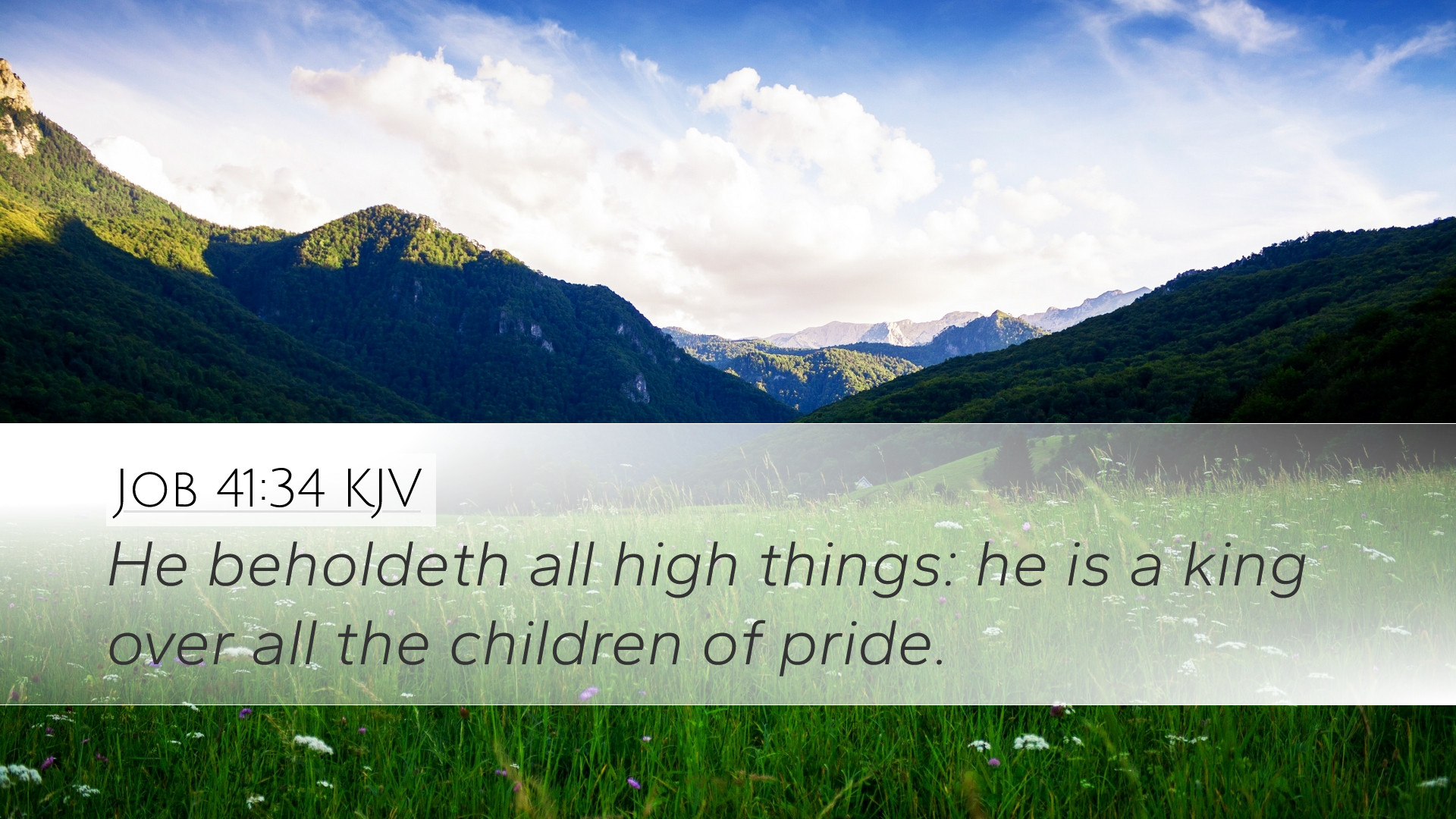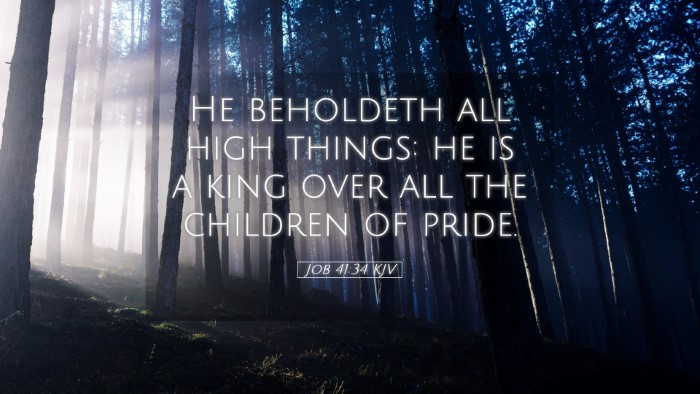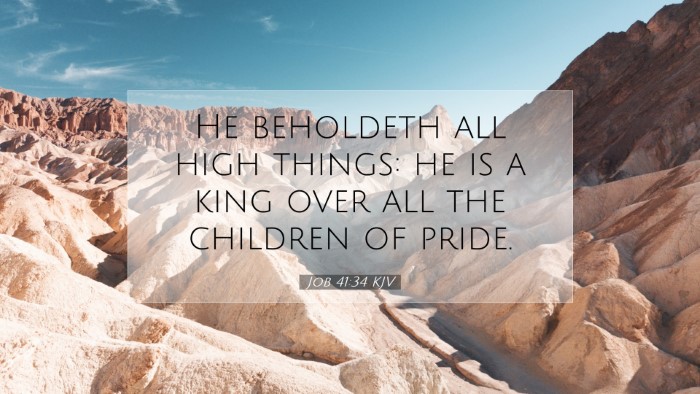Commentary on Job 41:34
Job 41:34 reads: "He beholdeth all high things: he is a king over all the children of pride." This verse is part of the Lord's discourse concerning the behemoth, illustrating the majesty of God’s creations and His sovereignty over the proud and mighty.
Introduction
This verse serves not only as a conclusion to God's description of the leviathan but also as a profound insight into the nature of pride and God's authority. Herein, we gather insights from esteemed commentaries, bringing forth reflections valuable for pastors, students, theologians, and Bible scholars.
Insights and Interpretations
The Majesty of Creation
As Matthew Henry notes, the leviathan symbolizes the might and majesty of God's creation. In this context, the phrase “he beholdeth all high things” indicates not only the creature’s power but also its position within God’s creations. God possesses an overarching dominion, observing all that exists from a divine perspective.
Pride as a Central Theme
Albert Barnes emphasizes the connection between pride and the leviathan. The creature, often regarded as a representation of chaos and pride, is described with such formidable features and capabilities that it becomes a metaphor for human pride. Pride manifests in multiple human behaviors and attitudes, often leading to downfall, which is implicitly contrasted with God's sovereign authority.
God’s Sovereignty
Adam Clarke's commentary brings forth the idea that the leviathan’s power serves to demonstrate the sovereignty of God over all creation and, specifically, over the prideful. The term “king over all the children of pride” highlights that despite their apparent strength or pride, they are ultimately under God’s control. Clarke suggests that this verse should instill humility within those who harbor ambitions of grandeur.
Theological Reflections
Understanding Human Pride: Human pride often leads individuals to see themselves as self-sufficient, disregarding the authority and governance of God. This verse serves as a stark reminder that, while humans may elevate themselves, they are subject to the divine king.
Proclamation of God's Power: The text issues a proclamation about God’s power over all things, especially those that seem mighty and unassailable. The proud often forget their place in the universe, and Job's narrative, culminating in this verse, serves to reinstate the rightful order established by God.
Practical Applications
- Encouragement Against Pride: For pastors, this verse can encourage congregants to examine areas of pride in their lives and consider their standing before God’s absolute authority.
- Lessons in Humility: Students of the Bible can take solace in the reminder that humility is essential in the light of God's sovereignty. A posture of humility opens the heart to God's guidance.
- The Assurance of God’s Authority: Theologians can derive from this verse the assurance that no matter the circumstances, God's reign is unassailable and His plans will ultimately prevail.
Conclusion
In Job 41:34, a rich tapestry of meaning weaves together God’s creation, the nature of pride, and His sovereign authority. The reflections drawn from Matthew Henry, Albert Barnes, and Adam Clarke illuminate the text's deep theological implications. Through this verse, we are reminded of our place under God, the beauty of His creation, and the folly of pride. As we reflect on these themes, may our understanding deepen, and may our lives increasingly reflect the humility that recognizes God as sovereign King.


